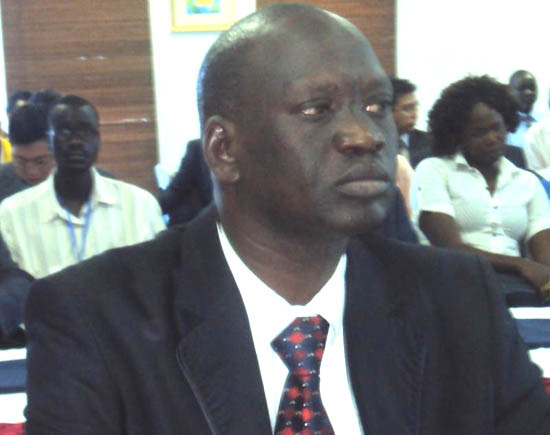
This article was last updated on April 16, 2022
Canada: ![]() Oye! Times readers Get FREE $30 to spend on Amazon, Walmart…
Oye! Times readers Get FREE $30 to spend on Amazon, Walmart…
USA: ![]() Oye! Times readers Get FREE $30 to spend on Amazon, Walmart…
Oye! Times readers Get FREE $30 to spend on Amazon, Walmart…
 The Sudanese Government of National Unity, GONU and Government of Southern Sudan, GOSS have failed to agree on resettling agreements on oil deal as stipulated in the Comprehensive Peace Agreement.
The Sudanese Government of National Unity, GONU and Government of Southern Sudan, GOSS have failed to agree on resettling agreements on oil deal as stipulated in the Comprehensive Peace Agreement.The GOSS Minister of Energy and Mining H.E Garang Diing informed press on Monday at Juba International Airport that the two GOSS and GONU parties failed to resolve disagreements over selling the national oil.
“We must not agree on such illegal decisions because we are not given the right to market the oil even after independence in 9th July in an official way and that is why we decided to withdraw from the discussions.”
Garang was addressing the media soon after his arrival from Khartoum where he attended a meeting on marketing policy for the national oil before South Sudan’s Independence. The meeting aimed to address associated disagreements between GOSS and GONU.
However, it was fruitless as the GOSS team pulled out from the talks. Garang warned Khartoum of taking unilateral decisions in dealing with the oil deal. “Whoever sells South Sudan’s oil without permission is conducting an illegal business,” he stressed.
The Minister assured GOSS’ continuous effort and commitments to negotiate with GONU on oil issues before Independence.
Garang affirmed that they are planning to travel to Ethiopia to negotiate on the issue of refinery, pipeline and other key areas.
Considering critical fuel challenges in the South Sudan, he said that oil was available but the existence of black marketers who agreed to keep oil prices high worsened the crisis.
He termed the whole situation as sinister retaliation that is intended to punish South Sudan over its overwhelming vote for separation. According to the minister, GOSS was taking measures against black marketers dealing mainly in the oil sales.
“We have taken measures against black markets and have already arrested two suppliers taking commodities to the black market,” he said.
The government resorted to import oil from East Africa as an alternative due to the blockade of the North-South border-road by Khartoum contrary to the Comprehensive Peace Agreement, CPA.
“Closing of the border was meant to disguise the Government of Southern Sudan from providing services to her people,” he added.
Article viewed at: Oye! Times at www.oyetimes.com

Be the first to comment